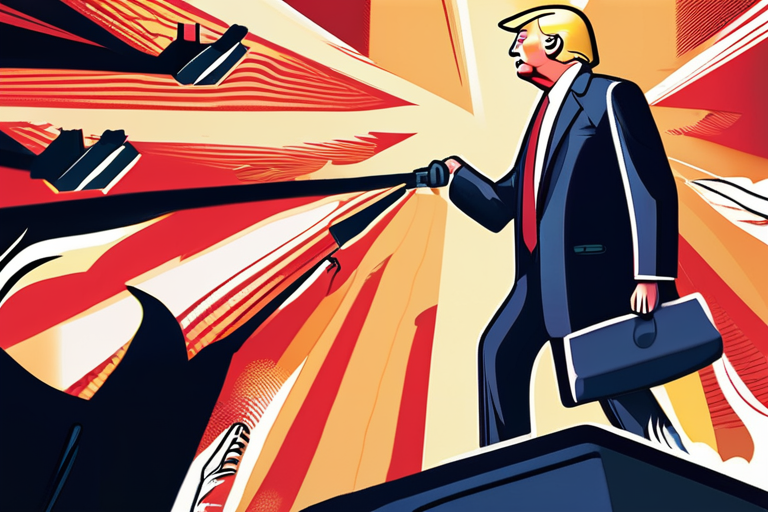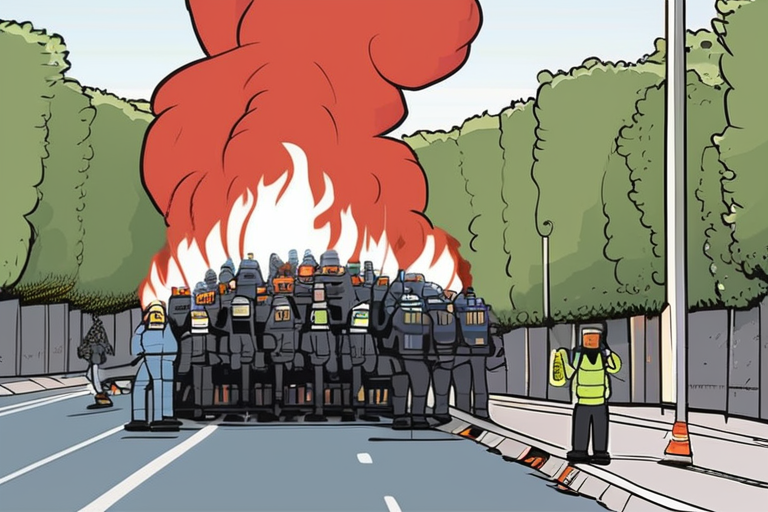The Revenge Campaign: Unpacking Donald Trump's Escalating War Against His Perceived Enemies
As the sun set over the White House on a sweltering September evening, President Donald Trump emerged from the shadows to deliver a parting shot at his latest adversary. James Comey, the former FBI Director who had once been a key player in the Russia investigation, now found himself on the receiving end of Trump's wrath. The indictment of Comey on charges of lying to Congress and obstructing a congressional proceeding marked a new low in Trump's escalating campaign of retribution against those he perceives as enemies.
But what drives this vendetta? And who are the players caught up in its vortex?
To understand the scope of Trump's revenge campaign, we need to rewind the clock. In recent weeks, a series of high-profile resignations and firings has left a trail of chaos in its wake. The previous US Attorney for the Eastern District of Virginia, a bastion of independence and integrity, was forced out after refusing to indict New York Attorney General Letitia James – another Trump foe. His replacement, Lindsey Halligan, a personal lawyer to the President, quickly got to work on Comey's case.
The indictment itself is a masterclass in selective prosecution. Career federal prosecutors reportedly opposed bringing charges against Comey, but their concerns were overruled by Halligan and her team. The charges themselves are remarkably slapdash – a far cry from the rigorous standards of justice that Americans expect from their government.
But what does this mean for the country? As Trump's campaign of retribution escalates, we're witnessing a disturbing erosion of the rule of law. The President's actions are sending a clear message: those who dare to cross him will be punished, no matter the cost to justice or the Constitution.
We spoke with several experts in the field to gain insight into the motivations behind Trump's behavior. "This is about more than just revenge," says Dr. Rachel Bitecofer, a leading expert on authoritarianism and democracy. "It's about consolidating power and silencing critics. When you see a leader using prosecution as a tool for personal vendettas, it's a warning sign that the democratic system is under threat."
Others are more measured in their assessment. "While Trump's actions may be seen as vindictive, they also reflect a broader concern about accountability," argues Dr. Michael Hayden, a former Director of National Intelligence and vocal critic of Trump's policies. "The President has every right to seek justice for perceived wrongs – but he must do so through the proper channels, not by manipulating the system."
As we look ahead, it's clear that this saga is far from over. With Comey's indictment serving as a catalyst, expect more names to be added to Trump's list of targets. The question on everyone's lips is: who will be next?
One thing is certain – the stakes are high. As we navigate these treacherous waters, it's essential that we remain vigilant and committed to upholding the principles of justice and democracy. For in a world where the President can wield prosecution as a sword of Damocles, the very fabric of our society hangs precariously in the balance.
Sources:
Cameron Peters, "Donald Trump's Escalating Revenge Campaign," The Logoff
Zack Beauchamp, "The charges against James Comey are remarkably slapdash – and here's why it matters," Vox
Dr. Rachel Bitecofer, expert on authoritarianism and democracy
Dr. Michael Hayden, former Director of National Intelligence
Additional Resources:
For a deeper dive into the implications of Trump's revenge campaign, check out our latest episode of The Logoff Podcast.
Stay up-to-date with the latest developments in this story by following us on social media.
This article is part of our ongoing coverage of the Trump administration and its impact on American society. If you have any questions or comments, please don't hesitate to reach out.
*Based on reporting by Vox.*



 Hoppi
Hoppi

 Hoppi
Hoppi

 Hoppi
Hoppi

 Hoppi
Hoppi

 Hoppi
Hoppi

 Hoppi
Hoppi











